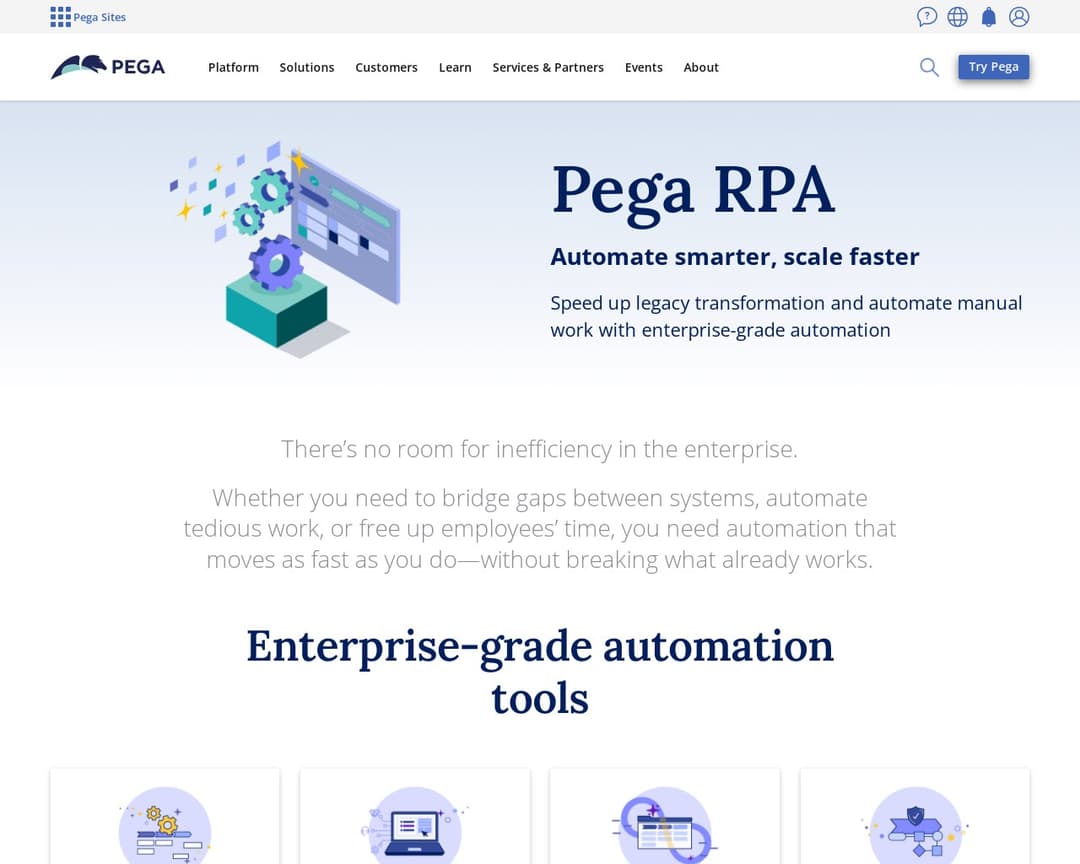Competitors
12
🚀
Discover 50+ More Competitors
This is just the tip of the iceberg. Unlock comprehensive insights into your competitive landscape.
Unlock Full ReportPega Robotic Process Automation (RPA) is an enterprise-grade software solution designed to automate repetitive tasks and integrate disparate legacy systems. It leverages AI and desktop mining to identify automation opportunities, streamline operations, and improve efficiency for businesses across various industries. The platform offers both attended and unattended RPA capabilities, along with features like email automation and self-healing automations.
3 of 4
Workflow Observation
Pattern Analysis
Task Automation
Actionable Suggestions
4 of 10
Integration APIs
Team Collaboration
Analytics Dashboard
Knowledge Sharing
Macro Recording
Smart Templates Library
Contextual Inline Help
Onboarding Accelerator
Privacy Controls
Non-Intrusive UI
Pega Robotic Process Automation aligns well with the concept of an AI-driven desktop assistant for workflow optimization. The website explicitly mentions 'Automate repetitive work' and 'Bridge gaps between systems' using RPA, which directly relates to task automation and integrating across applications. The 'Workforce Intelligence' feature uses 'desktop mining to automate strategically' and 'AI to identify where and when to automate for maximum impact,' which strongly indicates workflow observation and pattern analysis. Pega also highlights 'Auto-balancing' to maximize robot resources and 'Email Bot' using NLP and AI to triage and route emails, further supporting automation and intelligent processing. The platform's focus on 'end-to-end intelligent automation journey' and 'integrations' points to broader workflow capabilities and API support. While not explicitly stated as 'actionable suggestions' in the same phrasing, the core idea of identifying automation opportunities and providing bots to handle tasks implies a similar outcome. The platform also supports team collaboration through sharing and enterprise-wide deployment, and offers analytics through 'Workforce Intelligence'.

I've been using Alternative A for 6 months now and it's been fantastic. The pricing is much better and the features are actually more robust than what [Product] offers.
It handles edge cases much better and the API is actually documented properly.
Check it out at our site.
Honestly, after trying both, Competitor B wins hands down. Better customer support, cleaner interface, and they don't nickel and dime you for every feature.